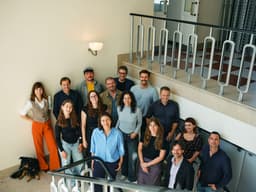
Awarding independent Russian journalism in wartime – Redkollegia’s evolution from prestigious award to financial lifeline
Despite war, censorship, and funding cuts, independent Russian reporters keep producing quality journalism. The Redkollegia award recognizes their work and aims to become a hub for financial support for independent media
The Fix Newsletter
Everything you need to know about European media market every week in your inbox
31 articles • 0 Followers











